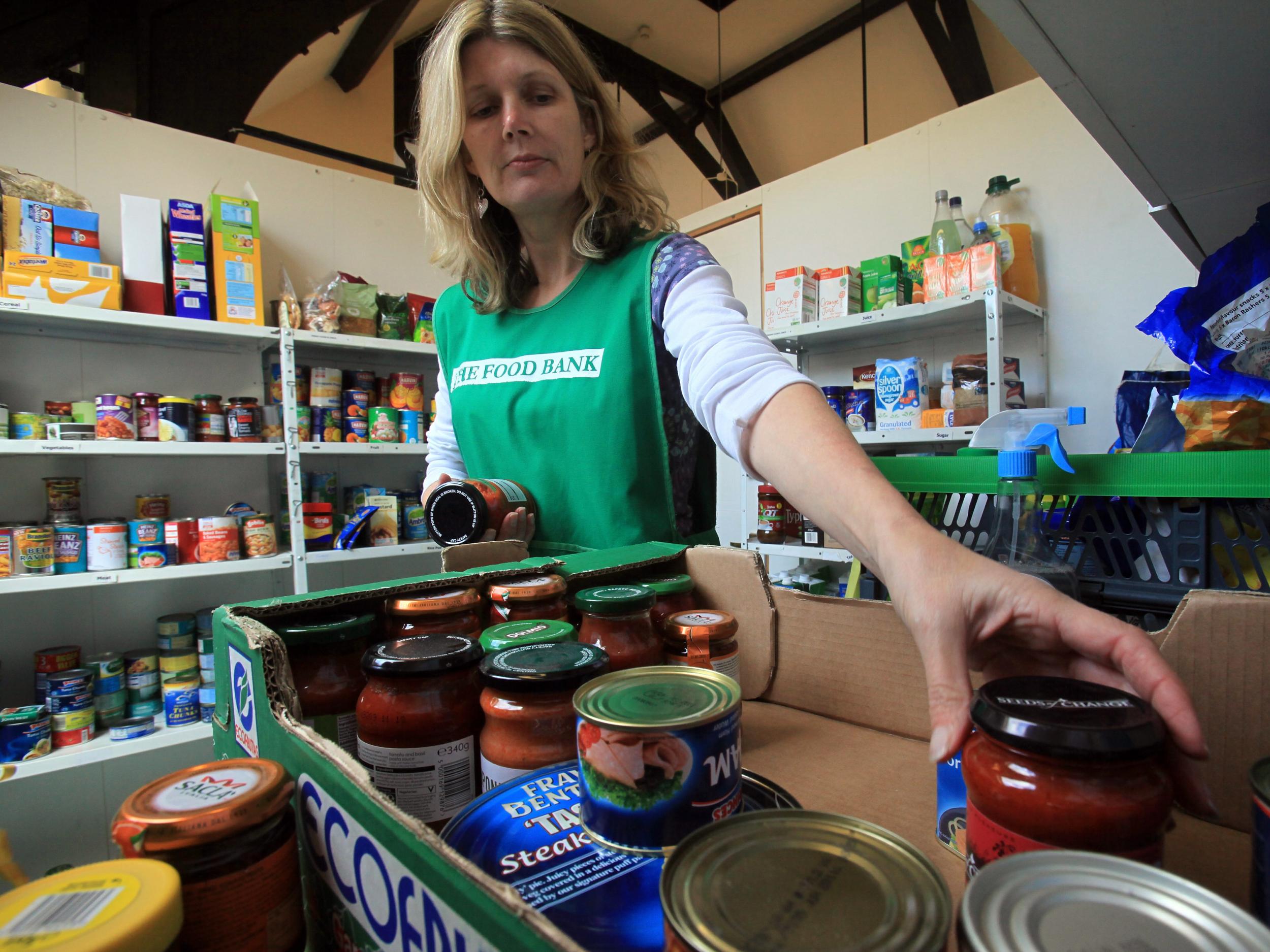Canadian supermarkets to give leftover stock to food banks
The original pilot project had 177 participating supermarkets and collected 2,500 tons of food worth almost $20 million (£16 million)

Your support helps us to tell the story
From reproductive rights to climate change to Big Tech, The Independent is on the ground when the story is developing. Whether it's investigating the financials of Elon Musk's pro-Trump PAC or producing our latest documentary, 'The A Word', which shines a light on the American women fighting for reproductive rights, we know how important it is to parse out the facts from the messaging.
At such a critical moment in US history, we need reporters on the ground. Your donation allows us to keep sending journalists to speak to both sides of the story.
The Independent is trusted by Americans across the entire political spectrum. And unlike many other quality news outlets, we choose not to lock Americans out of our reporting and analysis with paywalls. We believe quality journalism should be available to everyone, paid for by those who can afford it.
Your support makes all the difference.Supermarkets in Canada will start donating leftover stock to food banks, following a successful pilot scheme.
More than 600 stores in the province of Quebec are expected to take part in the Supermarket Recovery Programme (SRP), which will handle an estimated 14,000 tons of food per year.
Run by the Food Banks of Quebec network, it is the first initiative of its kind in the country.
Charities say the scheme's efficient distribution methods will make it possible for a greater number of food banks to offer fresh meat to people who cannot afford to buy it.
A reduction in the amount of food waste dumped in landfill sites is also expected to benefit the environment.
Nearly five million people in the country – one in seven of the population – live in poverty, according to a recent report by the charity Canada Without Poverty.
While in theory, there is enough food in the country for everyone, around £25 billion worth is thrown away each year.
Small charities have also struggled to efficiently collect and redistribute the food before it is disposed of.
“We’ve got enough food in Quebec to feed everybody, let’s not be throwing things out,” Sam Watts, executive director of the Welcome Hall Mission told Global News Canada. “Let’s recuperate what we can recuperate and let’s make sure that we get it to people who need it.”
He said supermarkets wanted to help, but they did not know how until the pilot project was established around Montreal and Quebec City in October 2013 as a way to bring unsold meat products to food banks.
“Supermarkets couldn’t accommodate individual food banks coming to them one by one by one,” Mr Watts said.
As in the trial, supermarkets will deal directly with SRP teams who will act as middle men, collecting food from stores on a scheduled basis, transporting and storing it. From a central distribution point, donations will then be delivered to existing independent food banks.
Dominque Anglade, Quebec's minister of economic development, innovation and export trade, described this as a "win-win" situation.
“It really allows them to organise the donations in a much better way,” he told Global News. He added that because dumping food in landfill sites had a negative environmental, as well as social, impact, climate change charities are also supportive.
Recyc-Quebec, a pro-recycling group, has even offered to subsidise the programme with $395,200 (£323,000).
The original pilot project had 177 participating supermarkets and collected 2,500 tons of food worth almost $20 million (£16 million), according to local media reports.
Greenhouse gas emissions also went down in the area as a result.
Mr Watts said he expected the programme to be extremely beneficial to smaller food banks throughout Quebec.
“Welcome Hall Mission officials said they saw a spike of users since the organisation joined the pilot project in 2013, making it one of the few food banks in the city to provide fresh meat," he said.
He added that he hopes the Quebec government will continue to help fund the project and he believes it will help the region's economy.
“We managed to take people and prevent them from falling into poverty, prevent them from falling into homelessness and, in turn, we get them to be productive citizens,” he said. “They go from being dependent to being people who are participating fully in society, who are paying taxes, who are actively involved in the workplace. To us, that’s a really good thing.”
Join our commenting forum
Join thought-provoking conversations, follow other Independent readers and see their replies
Comments